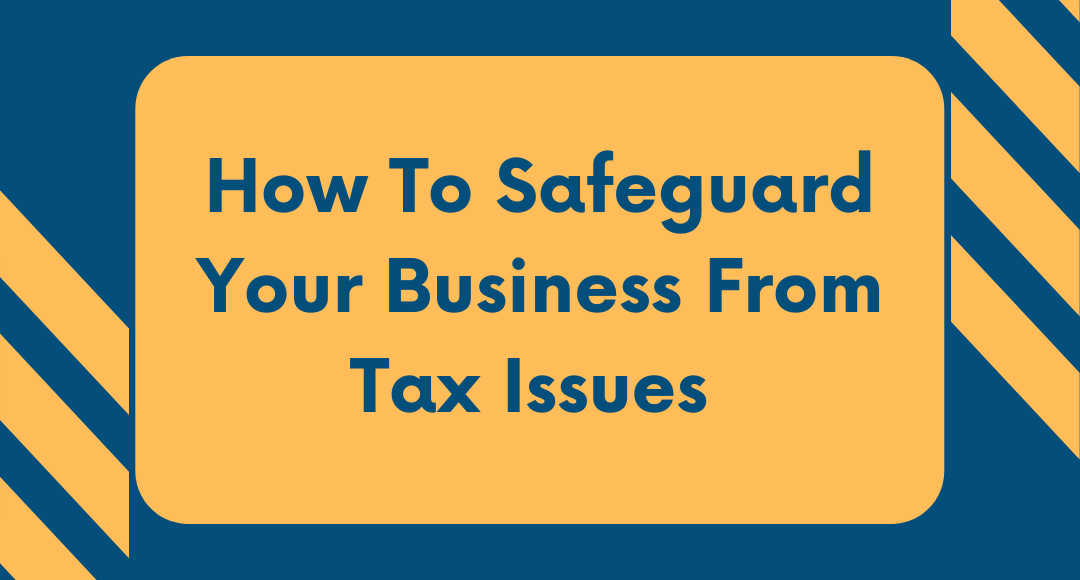
How To Safeguard your Business from Tax Issues
Learning the rules abiding taxes with regard to running a business can be a big task. This can either go smoothly or lead to making the wrong decisions for your taxes or even worse, simply guessing that you are doing the right thing and staying out of trouble. Well, it won’t be long before the Federal Inland Revenue Service (FIRS) come looking for you and they will ensure you pay unpaid taxes in full.
There are still businesses that have a hard time figuring out what needs to be done for their taxes. If you are this person, then you need to know how to safeguard your business from tax issue and this article will help you out.
Common questions people ask include:
- Does my business qualify to pay tax?
- How much does my business need to pay?
- How long would my business need to pay tax?
- How do I file the payment of my taxes?
- How would my business charge for tax?
As a business owner in Nigeria, you should know about these taxes.
1. Companies Income Tax – this is charged annually to all businesses registered in Nigeria on their profits – obtained from, brought into, or received in Nigeria. Section 9 Companies Income Tax Act Cap C21 LFN 2004; Section 3 Finance Act 2021.
2. Value Added Tax – this is enforced on the supply of goods and services which is payable by a customer of your business – tax is 7.5%. Section 34 Finance Act 2019 (as amended).
3. Capital Gains Tax (CGT) – this is charged on the positive difference between the sales price and the original purchase price of a Chargeable Asset – tax is 10% of chargeable gains. Section 2 Capital Gains Tax Act Cap C1 LFN 2004.
4. Education Tax – this is charged from all profit made by companies other than small companies in Nigeria as a contribution to the Education Tax Fund – tax is 2.5%.Section 28 Finance Act 2021.
5. Withholding Tax (WIT) – this is an advanced payment of ‘Income Tax’. It is deducted at the source when a payment is made to a beneficiary – tax ranges between 5 – 10%. Section 4 Finance Act 2021; See Federal Inland Revenue Service Circular No.2006/02.
6. Personal Income Tax (PIT) – this is payable by all individuals, businesses, and partnerships to the FIRS. An obligation of registered businesses with employees is to collect a Pay As You Earn (PAYE) fee from the salaries paid. Section 2 Personal Income Tax Act 1993 (as amended).
7. Petroleum Profits Taxes (PPT) – this is enforced on the income made by companies involved with petroleum operations. If you run this sort of company, you are exempted from paying this and Income Tax at the same time on a single income. Section 8 Petroleum Profits Tax Act Cap P18 LFN 2004.
8. Stamp Duties – this is to be paid for any agreement executed in Nigeria. It can be charged at fixed rates or ad valorem on authorized share capital or registration of new shares – tax is 0.75%. Section 3 Stamp Duties Act Cap S8 LFN 2004.
9. National Information Technology Development Levy – it is charged on the profit before tax is deducted. Companies liable to pay include Telecommunication companies, GSM service providers, Banks, Internet providers and companies with a turnover of 100million naira and above – tax is 1%.Section 12 National Information Technology Development Agency Act 2007.
Having this knowledge, you can still encounter problems along the way with your tax payment. So, here are the possible ways on how to safeguard your business. If you are unsure about taking your own advice, you should seek the help of a solicitor that will give you specific advice relating to your sort of business.
1. Consider Tax Avoidance
This is legal and helps you minimize the taxable income or tax you are owing. Individuals would take advantage of the existing loopholes in tax laws which precludes an individual from paying the full amount of tax due.
2. Avoid Tax Evasion
This is the easiest way to stay out of trouble and minimize the issues you may face with taxes. It is highly illegal and is an intentional refusal to pay taxes owed and this is a violation of tax laws. An individual or company can either declare income, profit earned falsely, fail to render tax returns to Relevant Tax Authorities.
3. Plan for Taxes
In your financial planning, it is essential to include your tax fees. The idea of this is to save
money and ease the burden of paying taxes. This keeps you in check and ensures savings on taxes while following the legal obligations and requirements of various Tax Acts.
4. Avoid Inflating Business Expenses
The income your company declares which is subject to tax can be increased when reporting expenses. However, inflating this cost can quickly raise a red flag because it is clear that your expenses and revenues do not match.
5. Don’t Under-report Business Income
Usually, the more income you report, the more taxes you have to pay. If you underreport your business income with the hope to reduce your taxes, you might be inviting the FIRS to give a closer look at the history of your reports when you get caught.
6. Report Sales and Employee Taxes
To comply with tax laws, reporting employee and sales taxes is mandatory. However, you may find that some companies or businesses do not do that and instead choose to pay employees off the record. This is tax fraud which is liable for penalties and criminal processing.
Let’s wrap this up!
Not being audited to avoid paying taxes will always be a bad idea, it might be sustainable short-term but in the long run, you might encounter a situation that would open a jar of hidden information or reports. We know that doing this is not worth the risk.
For the FIRS or tax authorities to initiate an audit, it means there is an issue, and they have strong reason to make their case. This is why GreenGold Attorneys offers useful tips and resources that can make your business life easier and keep you out of trouble.
Sign Up for our Newsletter to receive new updates on how you can ensure your business is
protected legally.

